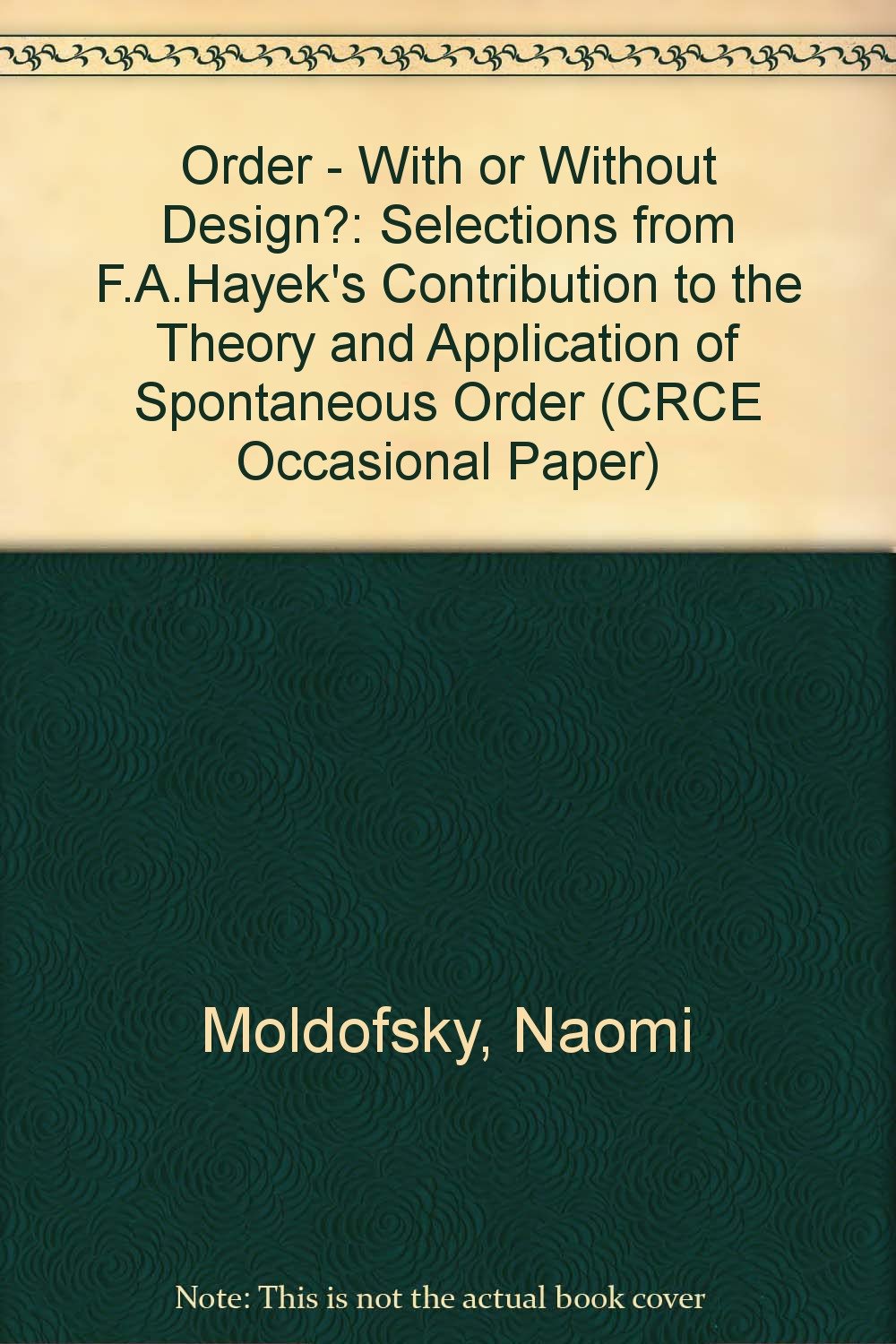

 |

|

The average rating for Order--with or without design? based on 2 reviews is 3.5 stars.
Review # 1 was written on 2013-05-17 00:00:00 Michael Andrews Michael AndrewsRanci��re first became known in the late fifties and early sixties as a collaborator with, and later a left critic of, Louis Althusser. In the eighties, with the collapse of the Stalinist bureaucracies in the Soviet Union and Eastern Europe, he accepted, as did many European Marxists, the thesis that the collapse of Stalinism equaled the collapse of Marxism, which equaled the end of the class struggle, and the permanent domination of neo-liberal "democracy". (A view which, in the hindsight of a quarter century and the current economic crisis, seems rather naive.) This book is an attempt to position himself slightly to the "left" of liberalism, to oppose the liberal view of democracy as "the end of politics", as simple management of a growing economy by experts who can solve all its problems given time and lack of interference by "politics", by a view which considers democracy to consist in "conflict over grievances", the periodic "verification of equality" through struggle -- provided the struggle avoids any attempt at reaching a "goal", or attempting to permanently change the "distribution of functions" (he avoids using the word "power" in this connection, which would show the problem with this whole idea.) In other words, he wants to continue the kind of politics he is familiar with -- demonstrations, strikes, movements -- but without any overarching "telos" like socialism tying them together. As an American, I am tempted to say, "so what?", Europe is just catching up (or falling back, depending on your perspective) to what American radical politics, without mass workers parties, has always been like. But European ex-Marxist intellectuals have to appease their consciences with theory. The book is by no means uninteresting. It consists of four papers written for other purposes (conferences, etc.) between 1986 and 1990. The first, on "The End of Politics", besides parodying the divergent liberal-conservative interpretations of what the end of politics consists in (in the French presidential elections of 1981), attempts to show the essential nature of democracy through an examination of the ancient city states (Athens, Rome) and their theories (Plato, Aristotle), history and even the etymology of various Greek and Latin political terms. Among the interesting ideas that he discusses are "the utopia of the Center" and the contrasting notions of "progress to a telos" and "progress as pure time." This is the best of the four. The second and third essays are largely devoted to justifying the abandonment of socialist goals, and distinguishing his theories from the other very similar theories of the time; they are fairly obscure, and in the end I think they just beg the question. The final essay on "Democracy Corrected" presents his own theory in the most positive light, with the emphasis on grievances; here he draws back from the more conservative implications of the middle essays. (Actually, if you reorder the essays in the order they were written, 2, 3, 1, 4, they start with the most conservative and gradually draw back.) Contrary to my expectations, this book doesn't break any new ground, and I'm not sure why it is included in a series of "Radical Thinkers", but it is worth reading, not only to understand current European political theory but also for the comparisons of ancient and modern democracy and the analysis of what democracy means. It's just the assumed, but never justified, counterposing of human equality and social equality which keeps it from being a good book (this was also true of the book about Jacotot, from whom he derives some of these ideas.) |
Review # 2 was written on 2020-10-04 00:00:00 Thomas White Thomas WhiteSo far, this seems like the best introduction to Rancière's ideas–the essays in here are, in some ways, condensations of a couple of his other books, and give additional ways to think about a few of his core ideas. |
CAN'T FIND WHAT YOU'RE LOOKING FOR? CLICK HERE!!!